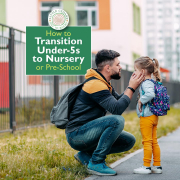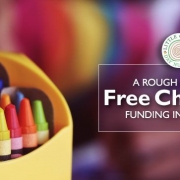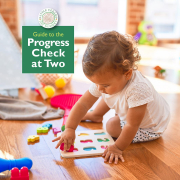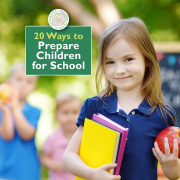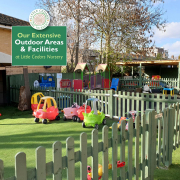Bilingualism in Early Childhood – Why it Matters & How to Support it
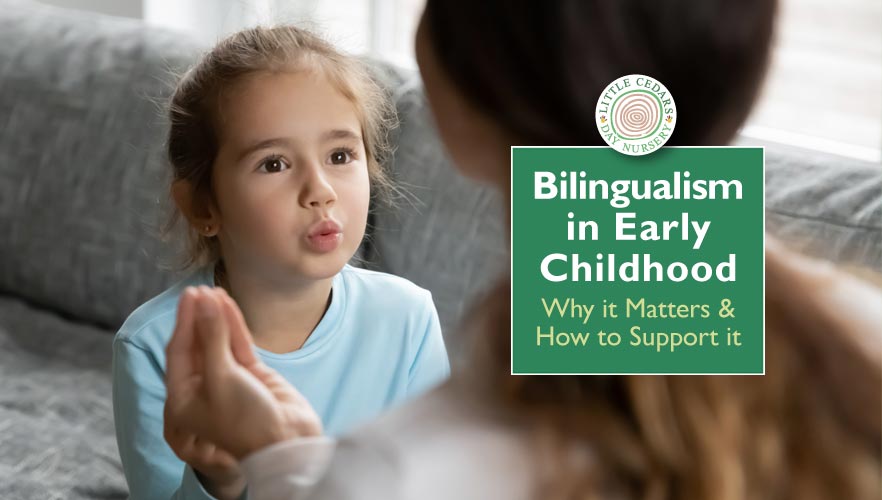
Young children are naturally wired to learn languages and there’s no reason why they shouldn’t learn more than one, particularly if they receive appropriate support. Bilingualism refers to the ability to speak two or more languages fluently. In today’s globalised world, being bilingual – or multilingual – has become an increasingly valuable asset. For children, bilingualism can offer numerous benefits, including enhanced cognitive development, improved language skills, and greater cultural awareness. However, raising a bilingual child can also present a few challenges, such as language confusion and potentially a slower rate of vocabulary acquisition in each separate language. In today’s article, we explore the benefits and challenges of bilingualism in children, as well as strategies for supporting their bilingual language development. This may better enable parents and caregivers to support the language development of children under their care.
Potential Challenges of Bilingualism in Children
While bilingualism offers many benefits to children, it can also present unique challenges. These may include:
Language Confusion
 Young bilingual children may sometimes mix their languages or use one language inappropriately in certain contexts. This is a normal part of the language acquisition process but can be a little confusing, at times, for both the child and their caregivers.
Young bilingual children may sometimes mix their languages or use one language inappropriately in certain contexts. This is a normal part of the language acquisition process but can be a little confusing, at times, for both the child and their caregivers.
Slower Rate of Language Acquisition? Actually No!
You may have read that bilingual children may take longer to develop language skills than monolingual children. It was thought that this was because they are learning two languages at the same time, which in theory could be more challenging and time-consuming. However, studies show that this is a myth.
“The idea that two languages cause language delays in children has been a long-standing myth … However, research has dispelled this myth. Children are able to learn two languages at the same pace as other children who are learning only one language.” (Nationwide Children’s Hospital) ∞
Possible Language Loss if Not Maintained
If a bilingual child does not have consistent exposure to both languages, they may lose proficiency in one over time. This can occur if the child is not regularly exposed to one language, or if they are discouraged from using one language in favour of the other. As adults, many of us know this to be true if we learnt a second language at school and have not used it subsequently — it’s easy to quickly forget vocabulary if not regularly used.
It’s important to remember that being bilingual is a valuable skill and that the benefits far outweigh the potential challenges that we’ve highlighted. With consistent exposure to both languages and support from caregivers and educators, bilingual children can overcome the challenges and naturally become proficient in both languages.
As we have seen above, bilingualism offers many advantages to children and can help them develop important cognitive and social skills. However, bilingualism also presents a few, unique challenges that parents, caregivers, and educators may have to navigate. By providing consistent exposure to both languages, creating a language-rich environment, and supporting children’s language development, bilingual children can become proficient in both languages and fully realise all the benefits that bilingualism offers. More tips for parents of bilingual children are available in a variety of languages here.
Little Cedars Nursery & Preschool, Streatham
The Highest Quality Childcare for Babies & Children Under 5 in Streatham

 As a childcare nursery, we recognise the value of bilingualism in the children we care for. Therefore, we support their language development in a way that fosters overall growth and development whilst also celebrating their cultural heritage.
As a childcare nursery, we recognise the value of bilingualism in the children we care for. Therefore, we support their language development in a way that fosters overall growth and development whilst also celebrating their cultural heritage.
Why not bring your baby, toddler or preschooler along for a guided tour of the setting, so you can meet the staff, see the facilities and ask any questions? You can also see how well your child fits in. Or, if you are ready to register your child for a place, we’ll be delighted to welcome them to Little Cedars Nursery. Please take the first step using a button below:
Little Cedars Day Nursery is officially a good nursery and preschool and is located in Streatham, SW16. We are also conveniently close to Streatham Hill, Streatham Common, Streatham Park, Furzedown, Tooting, Balham, Norbury, Colliers Wood, West Norwood, Wandsworth, Clapham and Brixton. All Government childcare funding schemes are supported.

 Bilingual children have been shown to have better cognitive flexibility, focus and creativity. Studies have shown that this often leads to better decision-making, prioritisation and planning skills too. With such skills in place, bilingual children may also have a better ability to multitask and switch between separate tasks.
Bilingual children have been shown to have better cognitive flexibility, focus and creativity. Studies have shown that this often leads to better decision-making, prioritisation and planning skills too. With such skills in place, bilingual children may also have a better ability to multitask and switch between separate tasks. Parents play a crucial role in supporting their bilingual children’s language development. To help your child become proficient in two different languages, it’s important to consistently speak both at home. Doing so can help children develop a particularly strong foundation in both languages.
Parents play a crucial role in supporting their bilingual children’s language development. To help your child become proficient in two different languages, it’s important to consistently speak both at home. Doing so can help children develop a particularly strong foundation in both languages.
